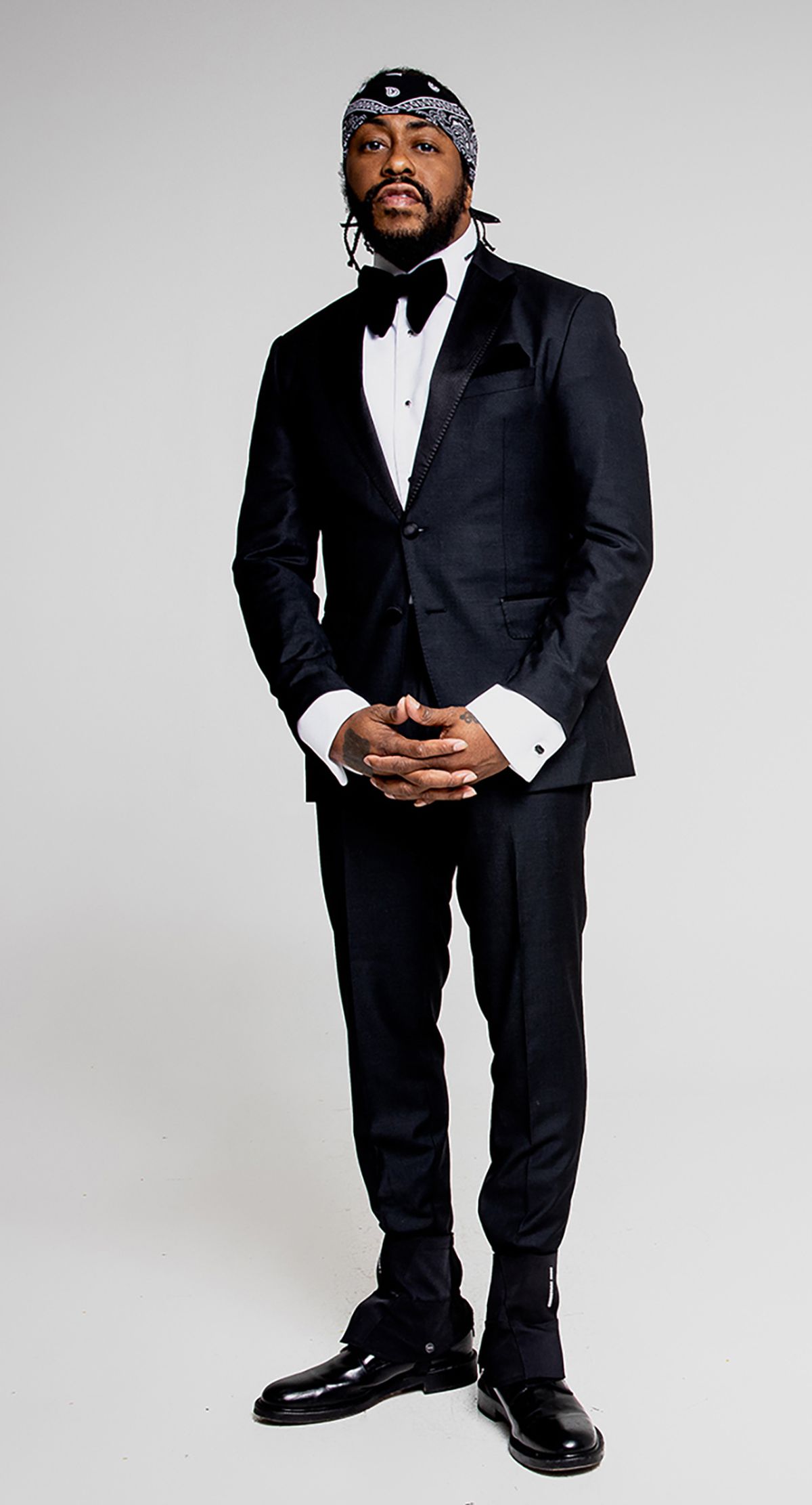Raheem DeVaughn wants to know what’s going on

Can an 8-year-old have musical pillars? Sure. Raheem DeVaughn already had a few by that age – Prince, Bob Marley, Earth Wind and Fire – and he says he’ll never forget the Sunday afternoon when one of them toppled: April 1, 1984.
“I had gone to the movies with my mother,” DeVaughn says of the moment that news of Marvin Gaye’s killing hit the airwaves. “It was raining, and I remember hearing Melvin Lindsey on WHUR saying, ‘This not a joke, I wish it was an April Fools.’”
Obviously, in that unforgettable instant, the 8-year-old DeVaughn had no idea he was destined to become an R&B star – but he remembers feeling like Gaye’s presence might end up coursing through the entirety of his life.
Thirty-six years later, he’s about to unveil his eighth studio album, “What a Time to Be In Love,” a collection of love songs and protest anthems where DeVaughn’s antigravity falsetto floats effortlessly back and forth between the sheets and the streets.
And if Gaye’s influence over the proceedings wasn’t already obvious, DeVaughn has formalized it with the song “Marvin Used to Say,” a midtempo lament about how his hero’s shadow hangs heavy over an increasingly darker world. In the first verse, Gaye is gone, and God might be, too. “They say the world is changing,” DeVaughn sings over some oily guitar chords. “It ain’t for the better. Wonder if God left us hanging.”
Ultimately, “Marvin Used to Say” blooms into a call to action against a litany of injustices, and by the time DeVaughn glides into the song’s conclusion, Gaye’s influence begins to sound more like an inheritance.
DeVaughn isn’t pantomiming Gaye’s mission so much as continuing it. The singer hears it that way, too. “It’s what we’re here to do,” DeVaughn says. “Continue the work of our ancestors.”
That work extends beyond the music, of course. DeVaughn has long been an advocate for social causes, especially through the charitable work of his Love Life Foundation.
“I feel that I’m being of service to the universe through my gift, not only through words and melody but as a community activist,” the Maryland-raised singer says. “As someone who’s started a foundation in D.C. and done events to fight domestic violence, to fight HIV/AIDS, to provide scholarships to local students, to help the homeless, doing anything we can do.
“ … What I do offstage, what I do outside the recording studio, it makes it easy for me to talk about what I talk about when I make those socially conscious records. I’m already walking in that light.”
While DeVaughn has been walking that walk for more than a decade, he remains deeply committed to his lyrical themes of social struggle and romantic ecstasy, singing both types of songs in a voice that’s somehow growing stronger and lighter as the years go by.
Throughout this new album co-produced by the Colleagues, DeVaughn’s pillowy phrasing and purling vocal harmonies allow him to plead his desires (“Mr. Midnight”) and interrogate his faith (“Lawd Help Me”) in granular detail.
As a songwriter, DeVaughn describes that attention to melodic and harmonic detail as intuitive and improvisational. He never studied music, so he trusts his engineers to pipe up when they hear something good in the recording booth.
For DeVaughn, his goal is to keep experimenting with harmony, following his melodic intuition until he surprises himself – a moment of validation that he describes as “the most humbling, arrogant experience.”
For a singer with such clear and long-standing intentions, those bright flashes of humble-arrogance have to be what keeps the music feeling sensitive and fresh, right?
“Yeah, I’m really back in love with my craft,” DeVaughn says. “It’s like, ‘Let’s see what rabbit comes out the hat next.’ ”
“What a Time to Be In Love” will be released Friday.